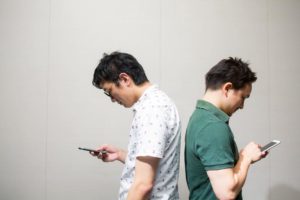尋ねる sounds the same as 訪ねる? They are Different!
What is the difference between “尋ねる” and “訪ねる”? Pronunciation of these is absolutely the same. However, the meaning of them is absolutely different. Let me introduce the difference between them and the way to correctly use them today!
尋ねる (tazuneru)
Ask (a question to someone)
“尋ねる” is “Ask (a question to someone)” and the basic way to use it is “___(somebody)に___(noun)を尋ねます。”. For instance, “私は先生に質問を尋ねます(I ask my teacher the question.), 人に道を尋ねる(I ask people directions.)”, etc. When using “尋ねる”, somebody and something are needed in the sentence.
\ Learn Japanese language online with a personal native teacher!/
Sample
海外の人によく道を尋ねられるの。 (Many foreigners often ask me for directions.) (经常被外国人问路。) (외국인이 자주 길을 물어봐.) (Tớ hay bị người nước ngoài hỏi đường lắm.)


先生にこの質問尋ねてみるよ。 (I’ll ask my teacher this question.) (我问问看老师这个问题。) (선생님께 이거 질문 해 볼게.) (Tớ sẽ thử hỏi thầy giáo về vấn đề này nhé.)


分からないから、あの人に尋ねてみて。 (I don’t know about it, so try to ask that guy.) (我不知道,问那个人看看吧。) (모르니까, 저 사람에게 물어봐.) (Tớ không biết đâu nên cậu thử đi hỏi người kia đi.)


先生を訪ねて、この質問を尋ねるよ。 (I visit my teacher and ask him/her this question.) (去拜访老师,问这个问题。) (선생님께 가서 이거 질문 해 볼게.) (Tớ sẽ đến thăm thầy rồi hỏi về vấn đề này nhé.)
訪ねる (tazuneru)
Visit
“訪ねる” means “Visit” and which has been used for somebody or somewhere. The difference between “私は先生の家を訪ねます(I visit my teacher’s house.)” and “私は先生に質問を尋ねます(I ask my teacher the question.)” are clear. So you would also say “私は先生の家を訪ねて、質問を尋ねます(I visit my teacher’s house and ask him/her the question.)”.
Sample


彼氏を突然訪ねたけど、寝てたよ。 (Although I suddenly visited my boyfriend, he was sleeping.) (我突然去找了我男朋友,但他睡了。) (남자 친구가 갑자기 왔었는데, 자고 있었어.) (Bạn trai đột nhiên ghé qua nhưng đúng lúc tớ đang ngủ đấy.)


訪ねる時は、連絡しないとね。 (When you visit him, you gotta text him.) (来的时候,必须先联系我哦。) (찾아 갈 때는 연락 해야 해.) (Khi nào ghé qua nhớ phải gọi trước đấy nhé.)


今朝たつやが訪ねて来たの? (Did Tsuya visit me this morning?) (达也今天早上来过吗?) (오늘 아침 타츠야가 찾아 왔어?) (Sáng nay Tatsuya đã ghé qua hả?)


明日、京都のおじさんを訪ねるよ。 (I’ll visit my uncle in Kyoto tomorrow.) (我明天会去看望我京都的叔叔。) (내일, 교토의 삼촌댁에 갈 거야.) (Ngày mai tớ sẽ đi thăm người chú ở Kyoto đấy.)
\ Learn more! /









Comments
List of comments (4)
What’s up to all, the contents existing at this web page are truly amazing for people experience, well, keep up the good work
fellows.
Hi, tutaj
Thank you for your great comment! I’m really glad to hear that from you guys! Yes, I’m going to keep up this job as your Japanese teacher. I hope you speak Japanese well soon!
Hi there, yup this paragraph is truly good and I have learned lot of things from it about blogging.
thanks.
Hi bogach
Thank you for your great comment and I’m so glad what you said! I’d say you’d be able to write, read, speak and listen Japanese well soon! Take care and enjoy learning Japanese!